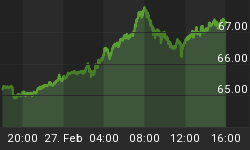I am reasonably certain that the economy is still in recession. If not (and this is ultimately up to the NBER to decide), the pending disaster in housing and commercial real estate will seal the double-dip deal.
Either way, the prognosis is not good, as economic conditions are deteriorating rapidly. With that thought in mind, please consider Housing Slide in U.S. May Drag Economy Into Recession
"If foreclosures continue to mount and depress home prices, that could send the economy back into a recession," said Celia Chen, an economist who tracks the industry for Moody's Analytics Inc. "The housing market and the broader economy are closely intertwined."
With 14.6 million Americans out of work, homeowners are struggling to hold onto their properties. One in seven mortgages were delinquent or in foreclosure during the first quarter, the highest in records dating to 1979, according to the Washington- based Mortgage Bankers Association. Foreclosures probably will top 1 million this year, said RealtyTrac Inc., an Irvine, California-based data company.
Federal efforts to help have had little success. Of 1.31 million loan modifications started under the Obama administration's Home Affordable Modification Program, 48 percent were canceled by the end of July, the Treasury Department said Aug. 20. More than half of all modifications defaulted again within 12 months, the Office of the Comptroller of the Currency said June 23.
Shadow inventory, or the number of homes repossessed or in default that eventually will be offered for sale, stood at 7.3 million in the first quarter, according to Laurie Goodman, an analyst in New York at mortgage-bond broker Amherst Securities Group LP. As those properties hit the market, prices will come under pressure and buyers will wait for better deals.
"The only thing that's going to fix the housing markets right now is a work-through of what excess supply is on the markets and improvement in unemployment," Guy Lebas, chief fixed-income strategist at Janney Montgomery Scott LLC in Philadelphia, said today in an interview on Bloomberg Television's "In the Loop with Betty Liu." "That process is a very, very long-term process."
Consumer spending rose 1.6 percent in the second quarter, down from 1.9 percent in the previous three months. Purchases of home furnishings and appliances fell 1.7 percent to an annual pace of $256.5 billion in June from a 2010 high in April, according to the Bureau of Economic Analysis.
"There is an epidemic of thrift," said Nariman Behravesh, chief economist at IHS Inc. in Lexington, Massachusetts. "Households and businesses are super-cautious right now. Sometime in the next 6 to 12 months, we'll start to see more movement on home and car purchases and greater willingness on the part of businesses to hire."
Epidemic of Thrift vs. Leap of Faith
Nariman Behravesh, chief economist at IHS Inc. in Lexington, Massachusetts correctly says "There is an epidemic of thrift".
Indeed there is, and actually it is a good thing! Consumers need to deleverage and they are.
Unfortunately Behravesh blows it with "Sometime in the next 6 to 12 months, we'll start to see more movement on home and car purchases and greater willingness on the part of businesses to hire."
Excuse me for asking but ... Small Businesses are Not Hiring - Why Should They?
As is typical of most economists, Behravesh displays an amazing and unwarranted leap of faith.
Structurally High Unemployment for a Decade
Guy Lebas, chief fixed-income strategist at Janney Montgomery Scott LLC has it correct: It will take a "very, very long-term process" to fix this mess.
Consumer demand is dead. That demand is not coming back anytime soon, and there is no driver for jobs if it doesn't. Unemployment and GDP will both be extremely weak for the duration.
Harsh Reality From Bernanke
In the Incredible Shrinking Boomer Economy I noted a harsh reality quote of Bernanke:
"It takes GDP growth of about 2.5 percent to keep the jobless rate constant. But the Fed expects growth of only about 1 percent in the last six months of the year. So that's not enough to bring down the unemployment rate."
I wrote that in July of 2009. Nothing has changed.
Indeed, 3rd Quarter GDP Likely Negative, Recession Never Ended
Pray tell what happens if GDP can't exceed 2.5% for a couple of years? What about a decade (or on and off for a decade)?
If you have come to the conclusion that we are going to have structurally high unemployment for a decade, you have come to the right conclusion. Ask yourself: Is that what the stock market is priced for?















